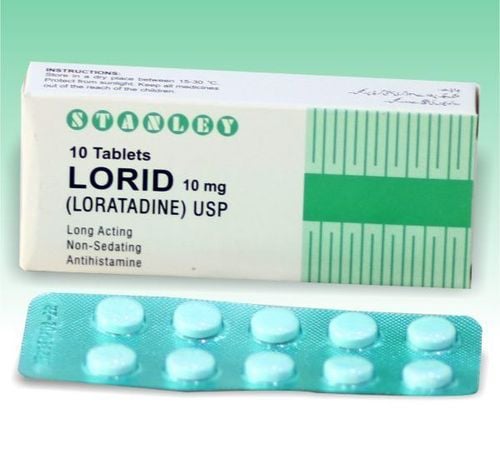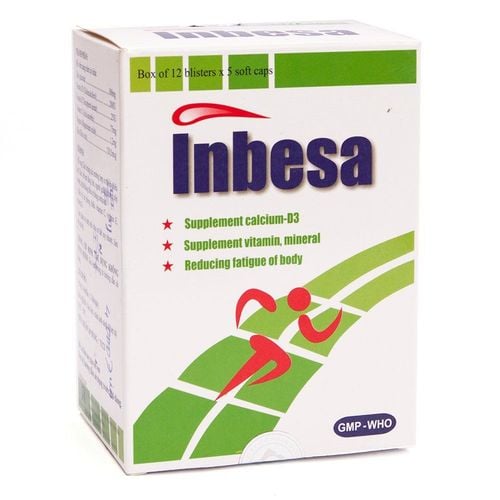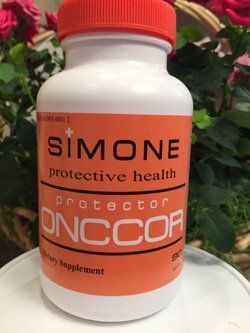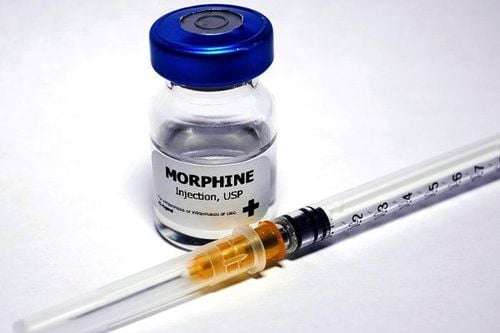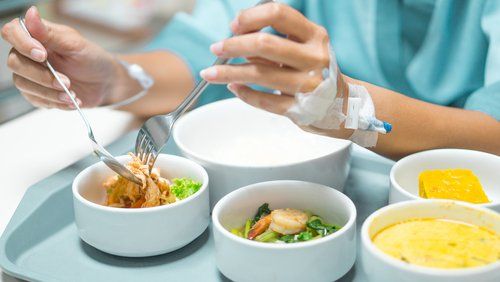This is an automatically translated article.
Anorexia during cancer treatment not only adversely affects the patient's physical and mental health, but also affects the ability to respond to cancer treatments. Therefore, nutrition for cancer patients with anorexia is extremely important.
1. Patients lose their appetite during cancer treatment
Cancer and the treatment process often cause patients to lose their appetite. Although you may lose your appetite, it's important to stay on top of calories, protein, and fluids throughout your cancer treatment. To do this, you should plan to make main meals and snacks more attractive and provide the necessary nutrition.
In some cases, such as for advanced cancer, diet may not have much effect on a patient's prognosis or treatment outcome.
Sometimes caregivers or family members can inadvertently stress patients by trying to force them to eat certain foods.
MORE: 12 beneficial fruits to eat during and after cancer treatment
2. Time to eat
Changing eating habits is an important factor to help patients not lose their appetite during cancer treatment:
Eating several times a day, each time only eating a small amount will help you feel more comfortable when Eating. If you feel full even after eating a small amount, choose the times when you want to eat the most. Cancer patients with anorexia often find it easier to eat if they eat small meals several times a day, rather than at certain meal times. Schedule meals: If you almost never feel hungry, try eating on a pre-arranged schedule. Eat more when hungry: Take advantage of times when you feel most hungry to eat more. Many people tend to crave food most in the morning, when they are resting. Limit liquids during meals: Water and watery foods can make you feel full faster and limit your intake of high-calorie foods. When you feel thirsty, it's best to drink water at least half an hour before or after a meal. Create a fun atmosphere during the meal. For example, use soft music, light candles, or choose a nice space to dine. Make meals more appealing: Choose foods that are colorful and garnish to make your meals look more appealing. Avoid foods with strong odors: Pay attention to the smell of food, as some scents can reduce appetite or make patients nauseous.

Ăn nhiều lần trong ngày giúp cải thiện tình trạng chán ăn khi điều trị ung thư
3. Snacks
Mid-morning snacks can add a significant amount of calories:
Have snacks ready so you can eat them as soon as you feel the urge. Cheese, ice cream, canned fruit syrup, dried fruit, nuts, peanut butter, cheese with crackers, muffins, cottage cheese and chocolate milk are examples of foods. High-calorie snack that you don't need too much time to prepare. Don't worry if some of the options above are high in cholesterol or fat. After regaining your appetite, you can focus on lower-calorie snacks. Snack before bed: Bedtime is often a good time to have a snack because your cravings for the next meal won't be affected. MORE: How to eat better while undergoing cancer treatment?
4. Try new ways of doing things
Sometimes new ways to help improve appetite during cancer treatment, such as:
Cold foods: Foods that are cold or at room temperature can be easier to eat, especially if their taste makes you uncomfortable. Cold sandwiches or salads, such as pasta salad, tuna salad, chicken, eggs, and ham are good choices. Try new foods: For cancer patients with anorexia, their favorite foods may no longer be appealing. However, the foods they don't really like will most likely bring a new feeling. Be physically active: Regular exercise can help stimulate appetite. Talk to your doctor about which exercises are right for you. Drinks: It may be easier for you to drink than to eat. Nutritional supplements, such as powdered milk, canned milkshakes or ready-to-drink drinks, can provide a significant amount of calories. Make your own smoothie: Combine fruits, vegetables with yogurt, ice cream or milk to make your own smoothie. While it takes more work than pre-made smoothies, it allows you to customize the recipe to your preferences and nutritional needs.

Tăng cường calo để cải thiện tình trạng chán ăn khi điều trị ung thư
5. Pay attention to increase calories
During living with cancer, treatment or recovery, your calorie and protein needs are often higher than usual. The following suggestions may help increase calorie intake:
Add butter or vegetable oil: Serve with butter and vegetable fats with potatoes, breads, cereals, rice, noodles, vegetables and soups to replenish add a significant amount of calories. Alternatively, you can add a little olive oil or another oil on bread, rice, pasta, and vegetables. Spread peanut butter or another nut butter on bread, apple slices or bananas, cookies for a boost of protein and good fats. Use croissants or cookies to make sandwiches. Add whole milk or powdered milk to hot cocoa, milkshakes, cereals, gravies, sauces, meatloaf, cream soups, or puddings. Add sliced avocado or guacamole to salads and sandwiches. Add nuts, such as sunflower and pumpkin seeds, to salads, stir-fries and stews. Grind flaxseeds and add them to yogurt, smoothies, hot cereals, and casseroles. Serve hot cereal with brown sugar, honey, dried fruit, cream, or nut butter. Serve with cakes with assorted cream. Using fruit with syrup will add more calories than fresh fruit or canned juice. If you like fresh fruit, add sugar and cream. Calorie-containing beverages, such as juices, lemonades, fruit-flavored drinks, malts, sodas, cocoa, milkshakes, smoothies, and eggs are nutritious and convenient additions profit. Although the suggestions listed do contain significant amounts of fat and sugar, this is not a cause for concern as you will only be taking in more calories until you regain your appetite. Talk to your doctor or dietitian if you are concerned about changing your diet.
6. Supplementing with protein helps improve anorexia during cancer treatment
Protein is important for growth, health and recovery. Cancer patients with anorexia need to add more protein to their diet. Here are some suggestions for you:
Add meat (animal or poultry), fish, cheese, or legumes (chrysanthemums, navy beans, black beans, kidney beans) to casseroles, soups, or stews. other stews. When making a salad, mix it with meat, such as chicken, ham or tuna salad. Make protein-fortified milk: Add 1/4 cup of powdered milk to 1 cup of whole milk, or add 1 cup of powdered milk to 1 quart of whole milk. Use this milk mixture as a beverage, or can be added to malt or used in cooking. Use commercially prepared protein supplements. If you are unable to eat red meat with your medical condition, try the following foods (which are equally good sources of protein):
Cheese Cottage Cheese Beans Lentils Fish Eggs Poultry Nuts and nut butters Peanut butter Fresh milk Milkshake Egg pudding Pudding Vegetarian burger Yogurt Quinoa

Bổ sung thêm protein giúp cải thiện chán ăn khi điều trị ung thư
7. Drink enough water during the day
Drinking enough water every day is also an important key in cancer nutrition, helping your body respond to treatment. Try to drink at least 2 liters of fluid a day, unless your doctor directs you to limit your fluid intake (only under certain circumstances).
Prioritize choosing drinks that contain calories. If sugary drinks are too sweet for you, try flavored water or juice diluted with water.
8. Consider taking a multivitamin
If the patient's loss of appetite during cancer treatment cannot be overcome by the above measures, you can consult with your doctor about supplementing with a multivitamin to supplement nutrients and minerals. Cancer treatments and prescribed medications can interact with nutritional supplements, so discuss them with your doctor before use.
Check the information on the product label and choose a multivitamin that provides your daily nutritional needs (should not be more than 100% of the daily value) of all vitamins and minerals.
One thing to keep in mind, if you are eating or drinking fortified foods or beverages, (such as cookies, smoothies and products fortified with vitamins and minerals), you No need for additional multivitamins.
Most cancer patients only focus on the treatment course, but don't really pay attention to cancer nutrition to improve their health. On the other hand, anorexia during cancer treatment makes it very difficult for patients to maintain a suitable diet with enough nutrition and energy. Meanwhile, this is a very important factor to help improve health, treatment efficiency and quality of life for cancer patients.
Follow Vinmec International General Hospital website to get more health information, nutrition knowledge, beauty to take care of yourself and loved ones in your family.
Please dial HOTLINE for more information or register for an appointment HERE. Download MyVinmec app to make appointments faster and to manage your bookings easily.
Reference source: mayoclinic.org





